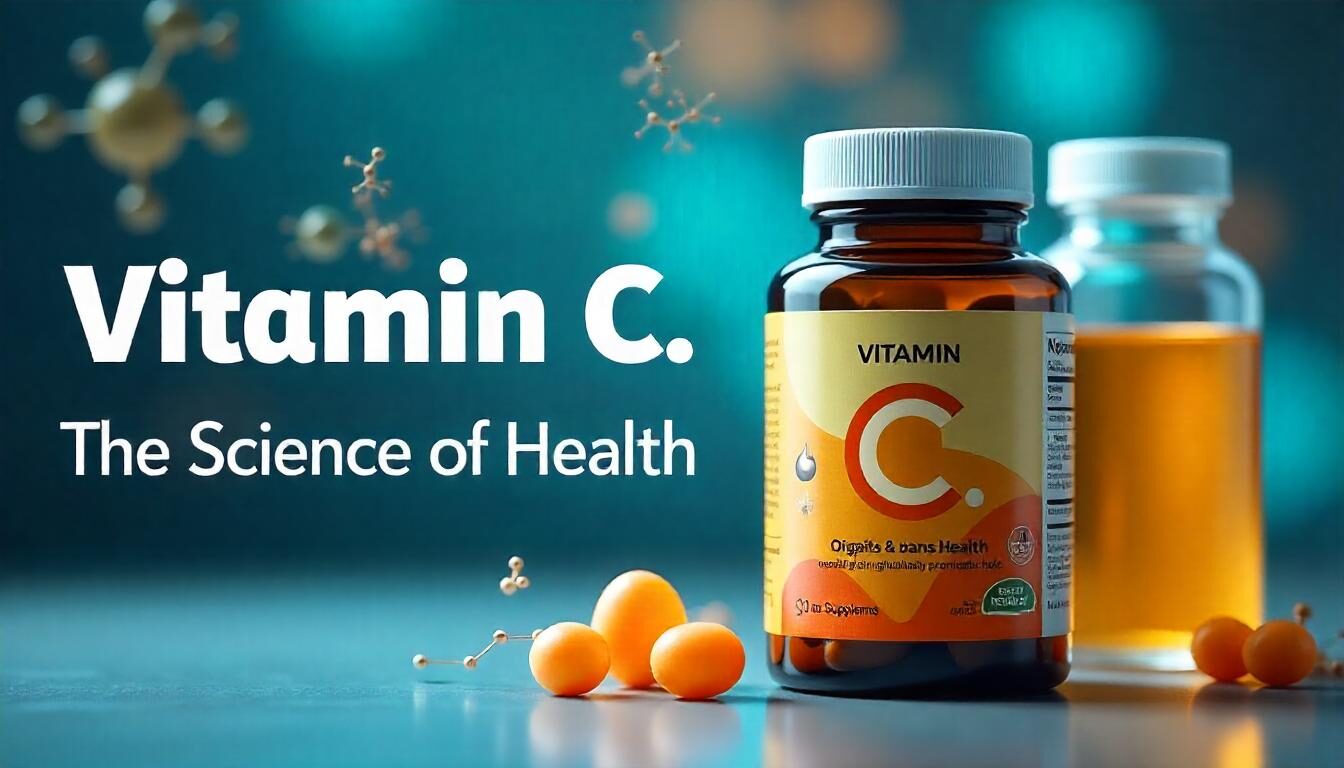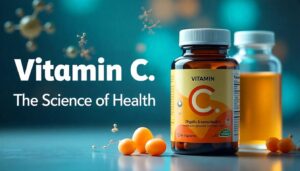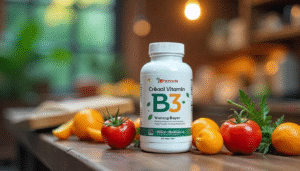Vitamin C
Vitamin C, also known as ascorbic acid, is a water-soluble vitamin essential for many critical functions in the body. It plays a vital role in the formation of blood vessels, cartilage, muscles, and collagen in bones. This vitamin also supports the body’s healing process and contributes significantly to overall immune and cellular health. Since the human body cannot produce vitamin C on its own, it must be obtained through diet or supplements.

Functions and Benefits
Vitamin C is best known for its role as a powerful antioxidant, protecting cells from damage caused by free radicals—unstable molecules produced when the body breaks down food or is exposed to environmental stressors such as tobacco smoke and radiation from the sun or X-rays. By neutralizing free radicals, vitamin C helps reduce the risk of chronic diseases such as heart disease and cancer. Additionally, vitamin C enhances the absorption of iron from plant-based foods, supports proper immune system function, and assists in wound healing. It also helps maintain healthy skin and connective tissues through its role in collagen synthesis.
Sources and Requirements
Vitamin C is widely found in fruits and vegetables. Excellent sources include citrus fruits (like oranges, lemons, and grapefruits), berries, tomatoes, potatoes, bell peppers, cabbage, Brussels sprouts, broccoli, and spinach. It is also commonly available in oral supplements, such as chewable tablets and capsules. The recommended daily intake is 90 milligrams for adult men and 75 milligrams for adult women. Most people can meet their vitamin C needs through a well-balanced diet without the need for supplements.

Deficiency and At-Risk Groups
Although rare in developed countries, vitamin C deficiency can occur, especially among certain at-risk groups. These include people who smoke or are exposed to secondhand smoke, individuals with gastrointestinal conditions that impair absorption, cancer patients, or those who follow a very limited diet that lacks fruits and vegetables. Severe deficiency can lead to a condition called scurvy, characterized by anemia, bleeding gums, bruising, and poor wound healing. Even mild deficiency can cause fatigue, irritability, and weak immunity.
Supplement Use and Effectiveness
While supplements are often taken for their antioxidant benefits, research suggests that vitamin C from food sources may offer greater benefits than supplements alone. For instance, while a diet rich in fruits and vegetables may help reduce the risk of certain cancers, it’s unclear whether vitamin C supplements provide the same protection. In terms of the common cold, studies show that vitamin C supplements do not prevent colds, but may slightly reduce their duration and severity if taken regularly. For eye health, vitamin C combined with other antioxidants may help slow the progression of age-related macular degeneration (AMD) and reduce the risk of cataracts.
Safety, Side Effects, and Dosage
Vitamin C is generally safe when taken at appropriate doses. However, high doses (over 2,000 mg per day) may cause side effects, including nausea, diarrhea, heartburn, abdominal cramps, fatigue, insomnia, and headaches. In some cases, excessive intake can lead to kidney stones, especially in people predisposed to them. Since vitamin C can interfere with medical test results, including stool blood tests and glucose screening, it’s important to inform your doctor if you’re taking supplements before undergoing any lab work.
Interactions and Precautions
Vitamin C can interact with certain medications and treatments. For example, it can increase the absorption of aluminum from medications like phosphate binders, which may be harmful for people with kidney issues. It may also reduce the effectiveness of some chemotherapy drugs, interact with estrogen therapies (including oral contraceptives), and potentially interfere with protease inhibitors (used to treat HIV). Additionally, high doses of vitamin C may weaken the effects of statins and niacin used to treat high cholesterol, and reduce the blood-thinning effect of warfarin, a commonly used anticoagulant.
Conclusion
Vitamin C is an essential nutrient with numerous health benefits, including antioxidant protection, improved iron absorption, collagen production, and immune support. While most people get enough from a balanced diet, supplements may be helpful for those with increased needs or limited intake. However, high-dose supplementation should be used with caution due to potential side effects and interactions. Ultimately, getting vitamin C through whole foods remains the safest and most effective approach for maintaining optimal health.
Popular Category
- Recipes For Healthy Eating
- Mindset
- Exercises and fitness tips
- Vitamins
- Healthy Lifestyle
See also this
Other posts
Our products











